Snore Calm® Foam Ear Plugs
5 or 30 pairs / NRR of 35 dB
The Snore Calm® Foam Ear Plugs for snoring provide superior noise reduction with a Noise Reduction Rating (NRR) of 35 dB. These soft, self-adjusting foam ear plugs exert minimal pressure on the ear canal, offering unmatched comfort and effective sound blocking.
Price range: £2.99 through £9.99
Tax included. Shipping calculated at checkout.
-
UK next day delivery available, order by 11am
-
Secure checkout, various payment options available
Product details
Description
Snore Calm® Foam Ear Plugs for snoring are soft, self-adjusting, and apply minimal pressure to the ear canal, providing unmatched comfort and protection. These disposable, hypoallergenic earplugs are reusable until soiled, making them both economical and effective. Featuring a distinctive rhubarb and custard colour, they offer a Noise Reduction Rating (NRR) of 35 dB—the highest available. Perfect for everyday or occasional use, they are non-irritating and designed for ultimate comfort.
Key benefits
- Soft and comfortable: Designed for long-wearing comfort with minimal pressure.
- Highly effective noise reduction: perfect for blocking snoring and other loud noises.
- Reusable and economical: Reuse until soiled, making them cost-effective.
- Hypoallergenic material: Made from non-irritating foam, suitable for sensitive skin.
- Distinctive design: Features a unique rhubarb and custard colour for easy identification.
Material
Made from hypoallergenic and non-irritating foam.
How to use
- Prepare the ear plug: Roll and compress the earplug into a small, crease-free cylinder.
- Insert the ear plug: Reach over your head and gently pull your ear upwards and outwards. Insert the compressed end of the earplug into your ear canal.
- Hold in place: Hold the earplug in position for a few seconds until it expands and creates a secure seal.
- Remove safely: Slowly twist and pull the earplug out to avoid damage to the eardrum.
Precautions
- Avoid rapid removal to prevent eardrum damage.
- Ensure proper fitting for maximum effectiveness.
- Discard ear plugs if they come into contact with lubricants, solvents, or chemical substances.
- Keep away from infants and small children when not in use.
- Discard after several uses or when wax accumulates.
Additional FAQs
What are the best ear plugs for snoring?
The best ear plugs for snoring depend on your comfort and the level of noise you need to block. Foam ear plugs expand in the ear canal, while silicone earplugs mould to the shape of your ear. There are also specialist options like noise cancelling earplugs for snoring and isolate ear plugs. For very loud snoring, dense high-decibel (dB) ear plugs for sleeping may be more effective. Ear plugs are rated by their Noise Reduction Rating (NRR), which typically ranges from 22 dB to 37 dB – the higher the rating, the more noise they can reduce.
How do I put ear plugs in correctly?
For foam ear plugs, roll the plug into a small, tight cylinder, then reach over your head with the opposite hand to gently pull your ear upwards. Insert the plug into the ear canal and hold it in place while it expands to create a snug fit. Silicone and reusable ear plugs are pressed or twisted gently into place. Always follow the manufacturer’s instructions, as fitting methods can vary. Insert them carefully and never push them too deep, as this can cause discomfort or damage to the eardrum.
Is it safe to sleep with ear plugs in every night?
Ear plugs are generally safe to use every night, as long as you follow good hygiene. Wash your hands before handling them, clean reusable plugs regularly, and replace single-use foam ear plugs often. Keeping them clean and dry helps lower the risk of irritation, earwax build-up, or infection. Avoid pushing ear plugs too far into the ear canal, as this can cause discomfort or wax blockage. If you notice pressure, itching, or soreness, try a different type or size – or consult a healthcare professional for advice.
Do ear plugs damage your ears?
When used properly, ear plugs are safe and should not damage your ears. Issues usually arise if they’re inserted too deeply, used when dirty, or not replaced often enough, which can lead to irritation or wax build-up. To prevent problems, insert them gently, keep them clean, and follow the manufacturer’s replacement guidance. If you have ongoing ear problems, it’s best to speak with a healthcare professional before using ear plugs regularly.



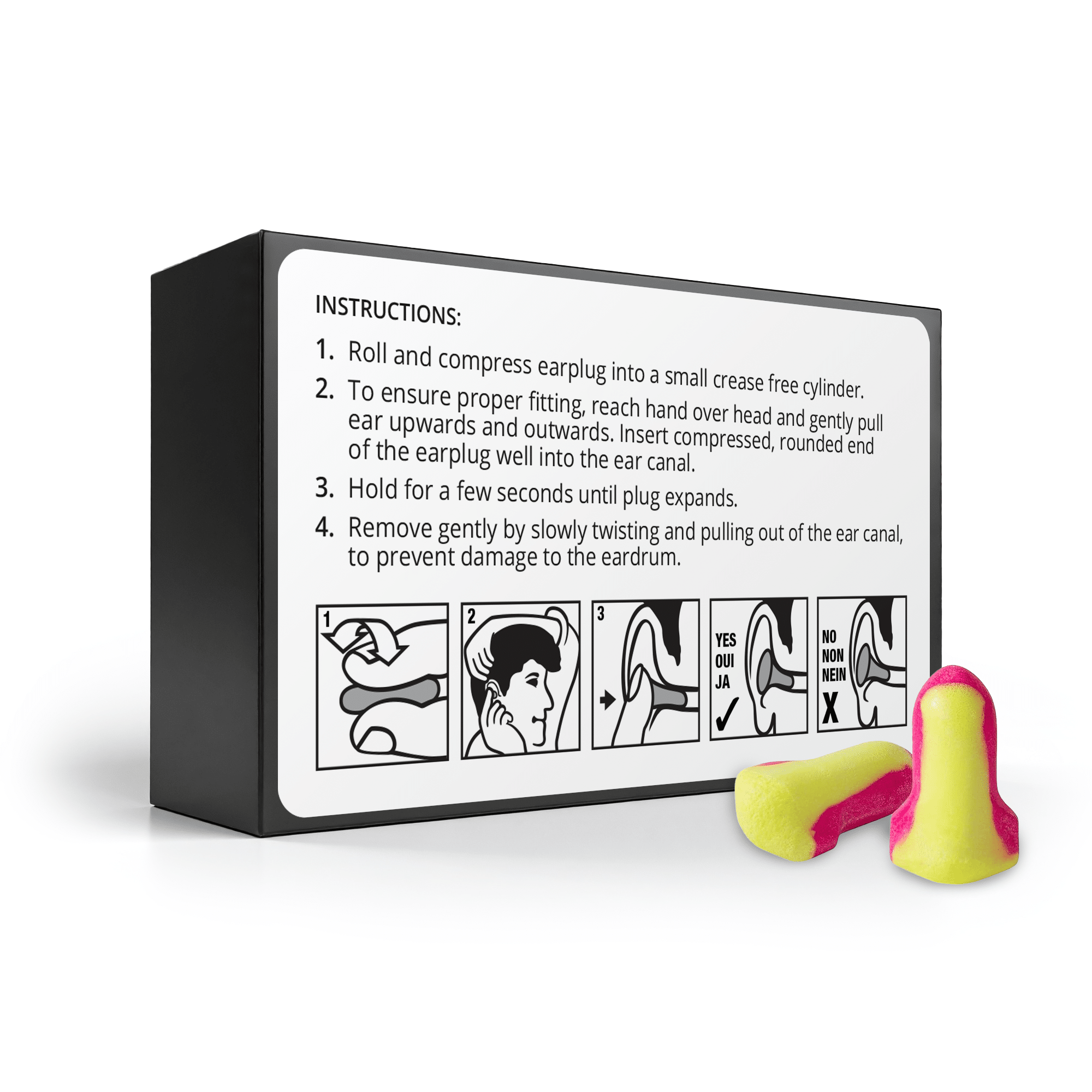
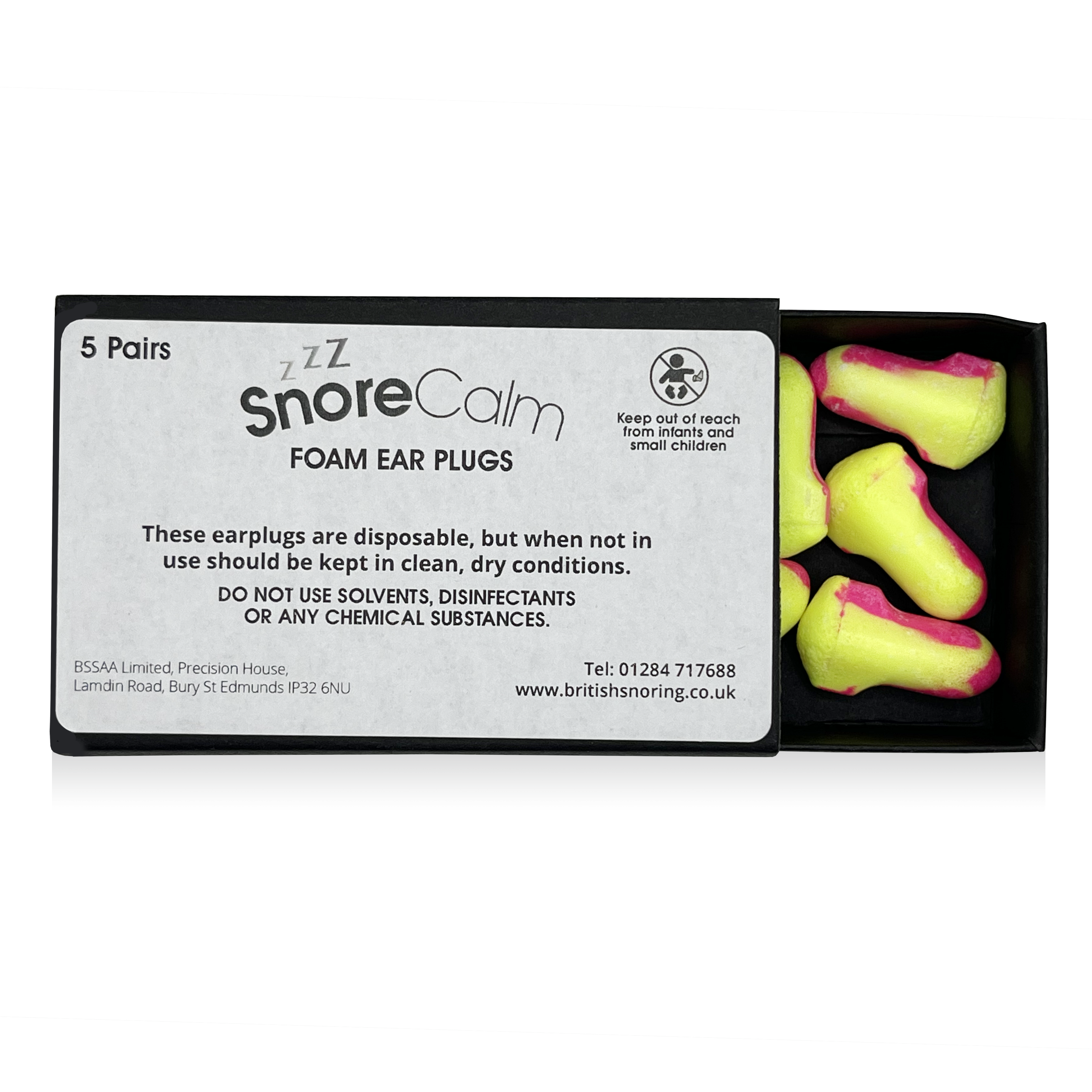
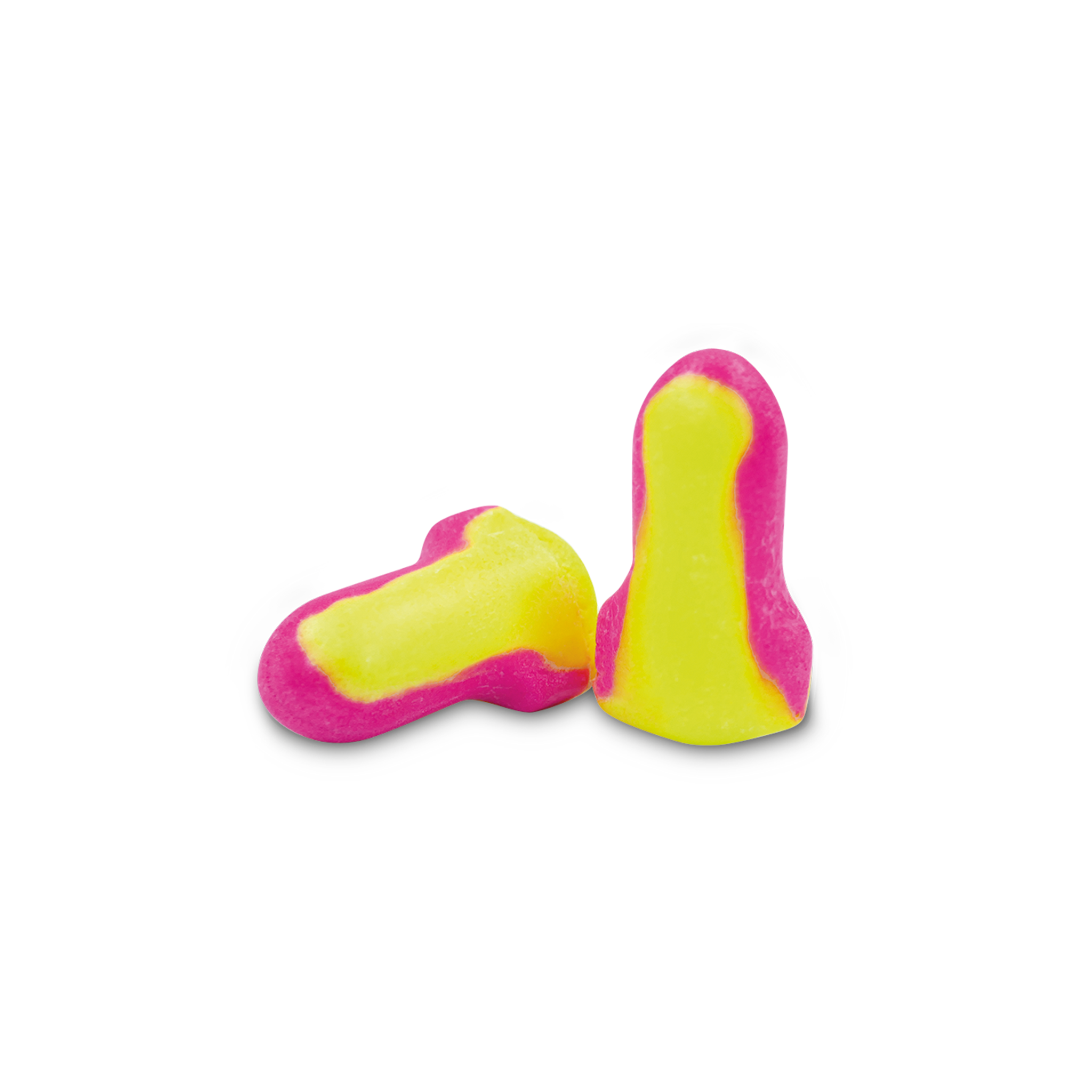

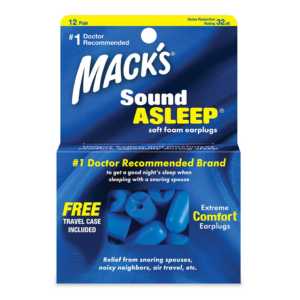
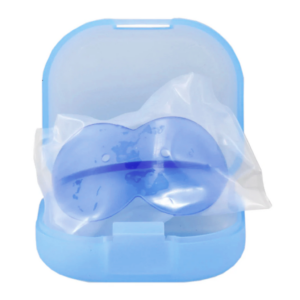
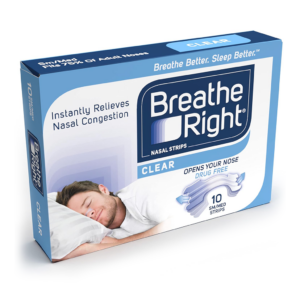


436 reviews for Snore Calm® Foam Ear Plugs
Ear plugs that work great!
Finally. Some ear plugs that work great. Minimises the snoring from my hubby. Doesnt get rid of all the noise but makes it so much better…. i can also hear my alarm clock with these earplugs in. Ive tried all sorts of ear plugs- the cheaper ones to the expensive ones, these so far are the best. (Except when my hubby increases the decibels to out of this world snoring). I get about 2 maybe 3 nights out of a pair of these. Highly recommend.
SNORE CALM FOAM EAR PLUGS
Finally after years of trying just about EVERYTHING on the market these (almost) work. They block out my partners ‘normal’ snoring so I get some sleep. Nothing will ever stop the extra loud occasional snorts that frighten me rigid, they can be heard from another planet, but will be ordering more on a regular basis.
Snore Calm ear plugs
An excellent product. Bought these for my wife as I am the snorer. She finds them comfortable to wear (takes a few nights to get used to them) and very effective at blocking out my snoring. Have tried nasal strips and mouth guards previously, neither of which were an effective solution. Pleased therefore to report a good nights sleep had by all.
Excellent plugs!
Bought these as a final try at giving my wife a snore free night and they’re the best we’ve come across at this bargain price. They cut out 80-90% of my horrendous noise and almost allow my wife a proper nights sleep apart from when I have particularly horrendous snoring episode.
Ear Plugs
The best ear plugs I’ve ever brought, they were recommended by a friend and I have no hesitation in recommending themnto anyone. Noise at night is now a thing of the past.They take a few nights to practice putting them in correctly, fiddly, buy well worth persevering.